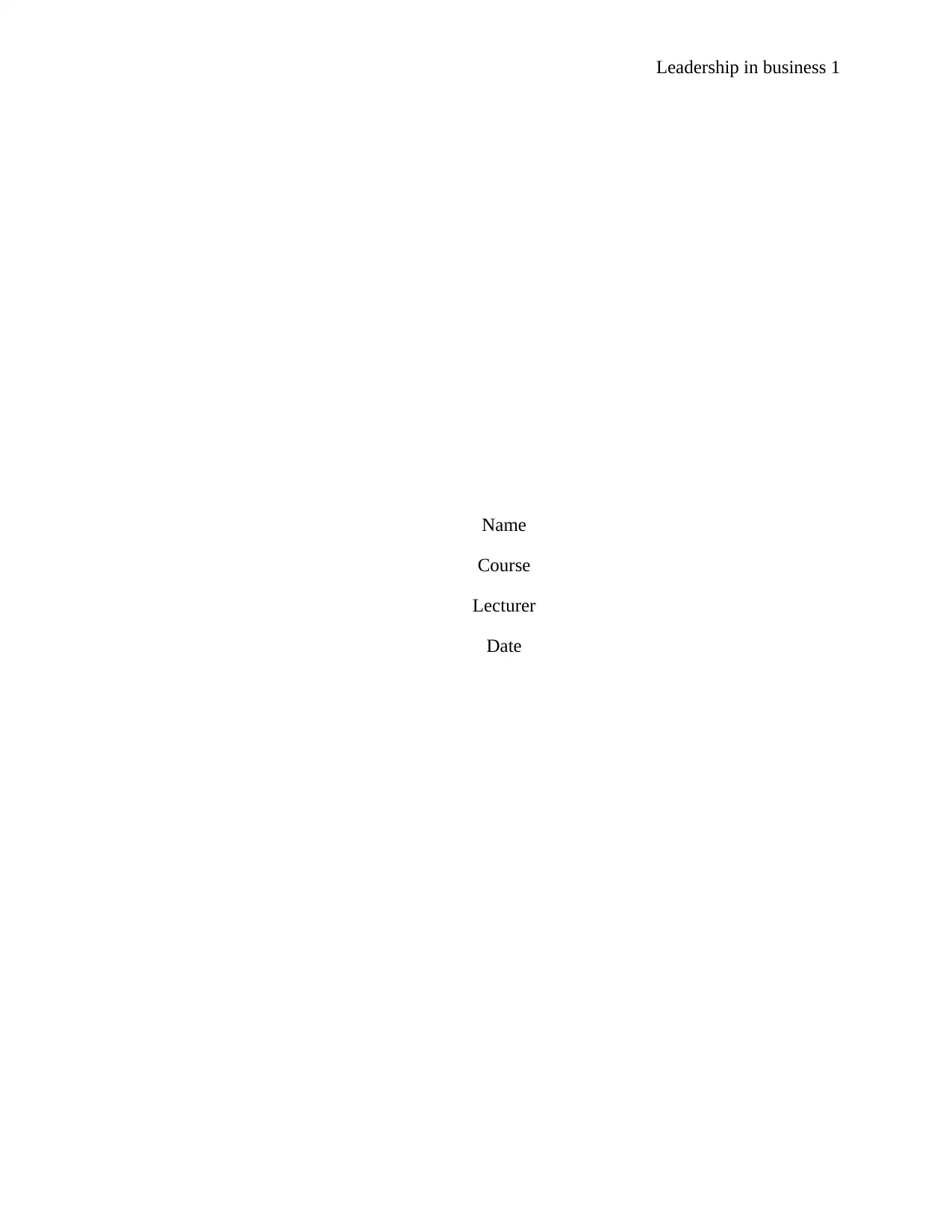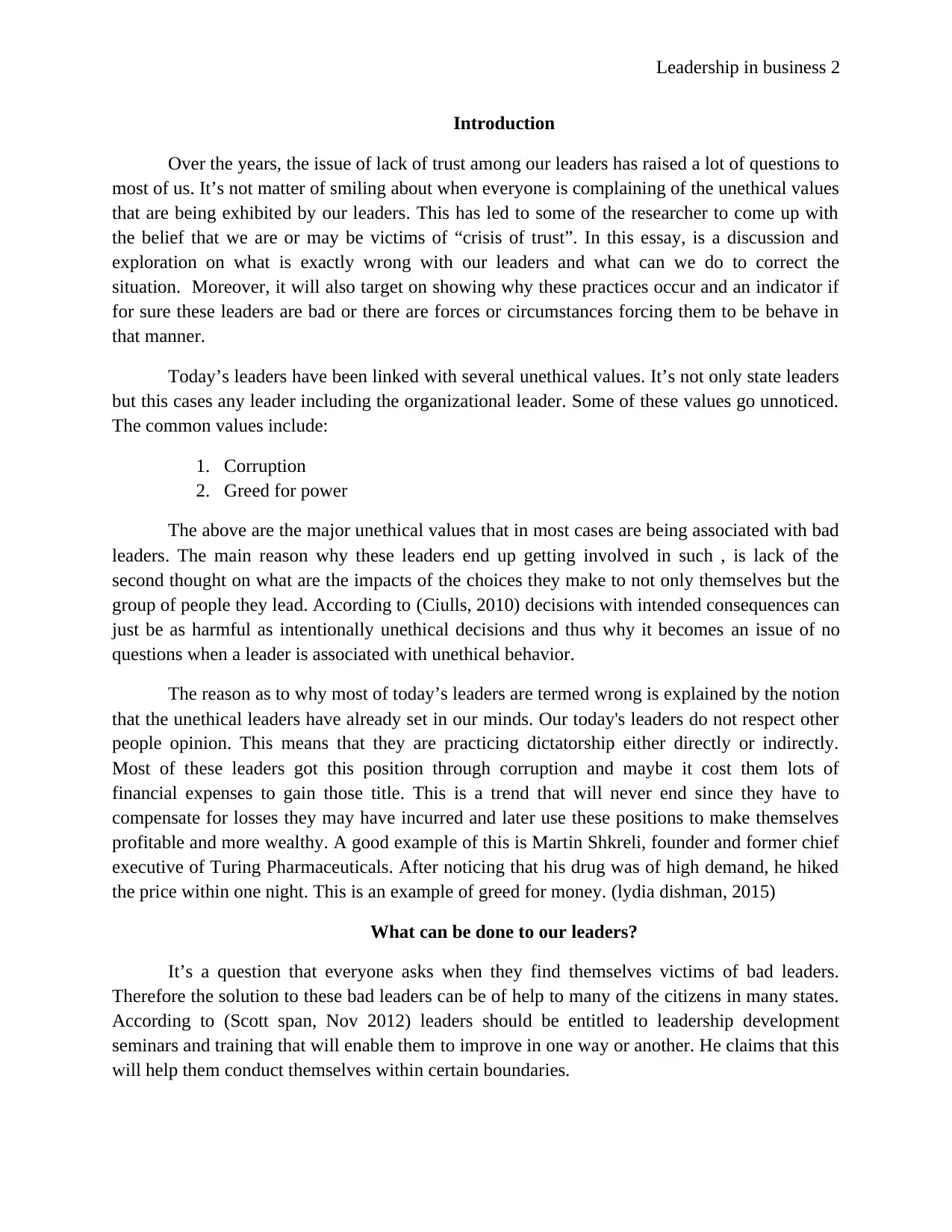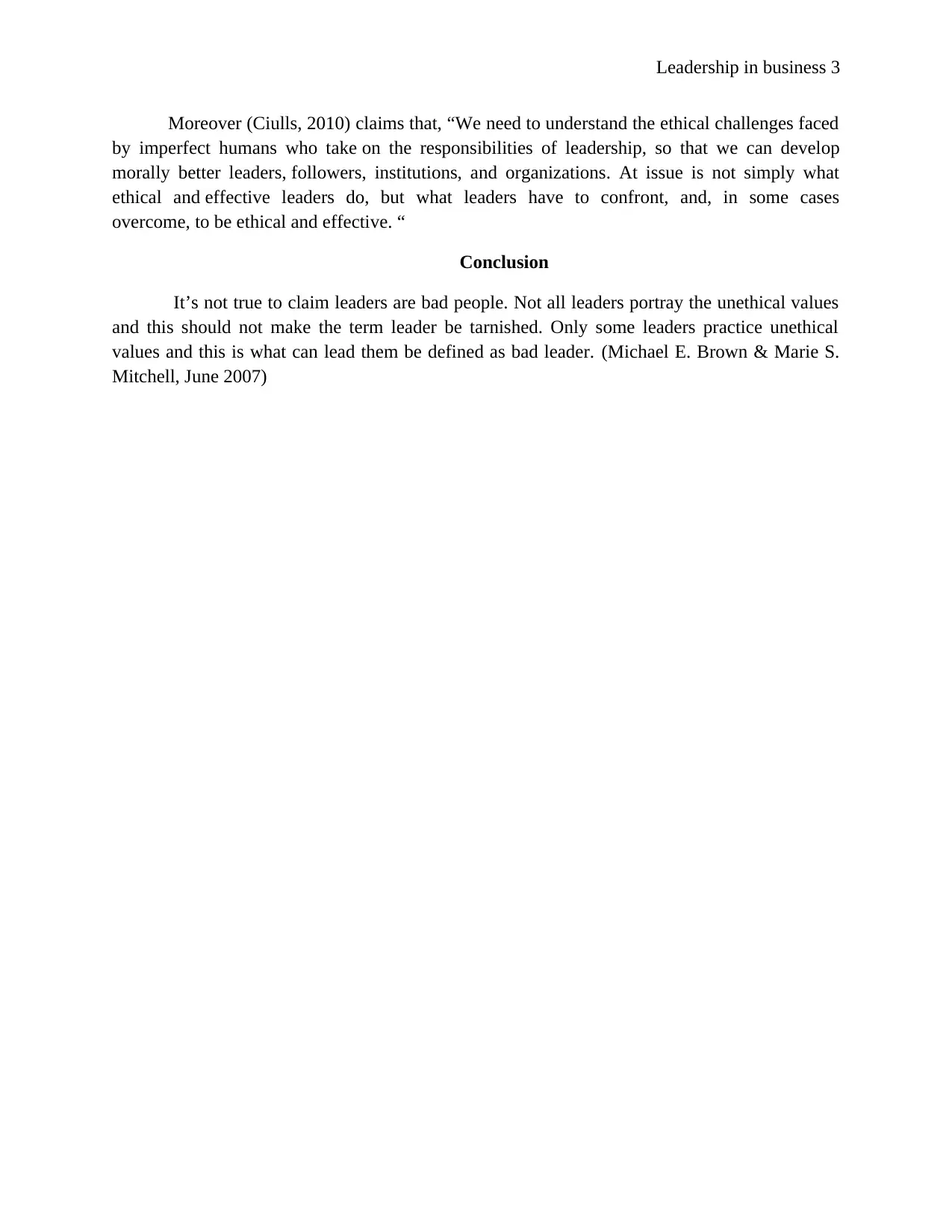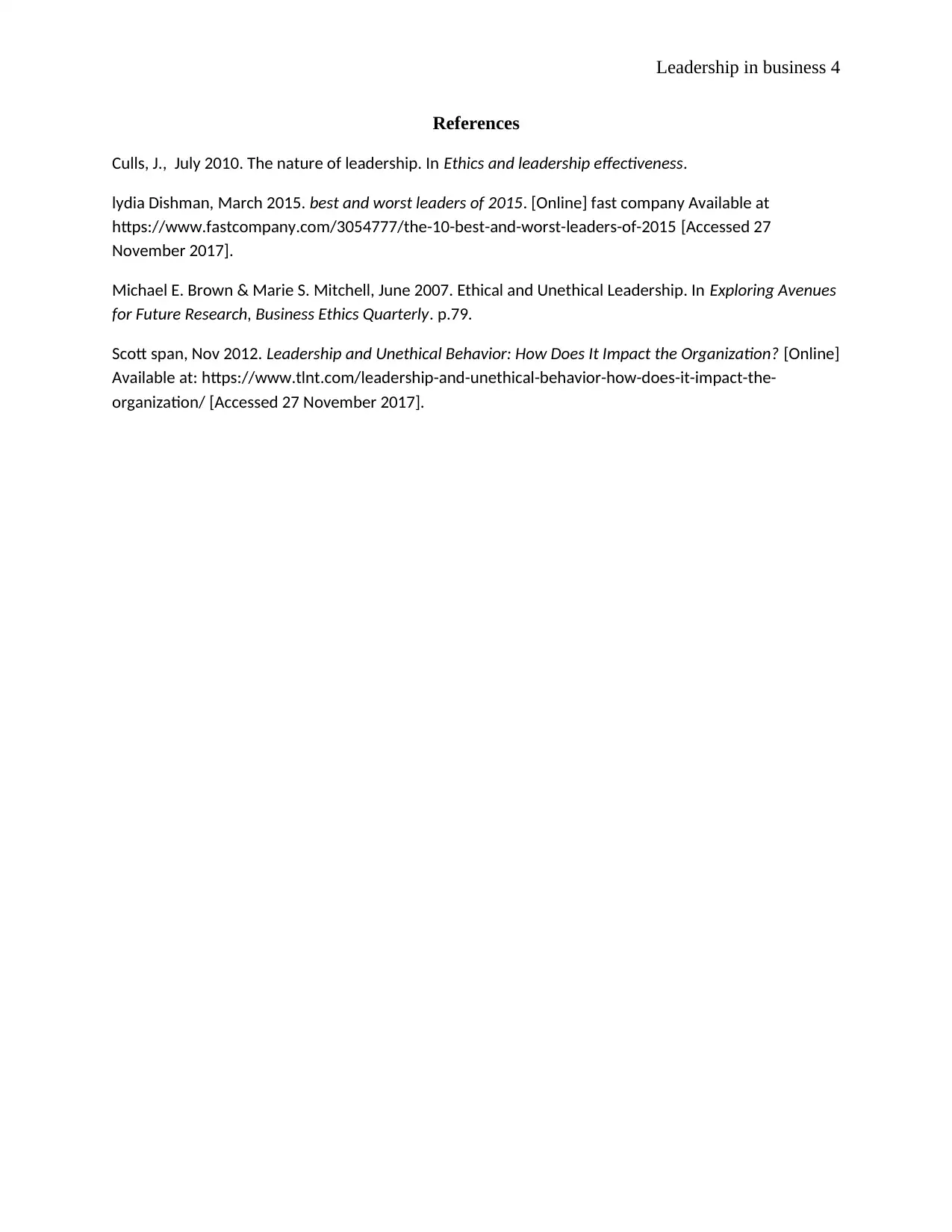Essay: Leadership in Business and the Crisis of Trust (Course Name)
VerifiedAdded on 2020/04/13
|4
|791
|36
Essay
AI Summary
This essay delves into the critical issue of leadership, particularly focusing on the erosion of trust due to unethical behaviors. It explores the prevalence of unethical values such as corruption and greed within leadership roles, examining their impact on individuals and organizations. The essay investigates the root causes of these behaviors, questioning whether leaders are inherently flawed or influenced by external pressures. It also proposes potential solutions, including leadership development seminars and training, to foster ethical conduct and improve leadership effectiveness. The discussion includes examples like Martin Shkreli to illustrate the negative consequences of unethical practices. Ultimately, the essay aims to provide a nuanced perspective on leadership, acknowledging that not all leaders exhibit unethical values while emphasizing the importance of ethical considerations in leadership.
1 out of 4











![[object Object]](/_next/static/media/star-bottom.7253800d.svg)